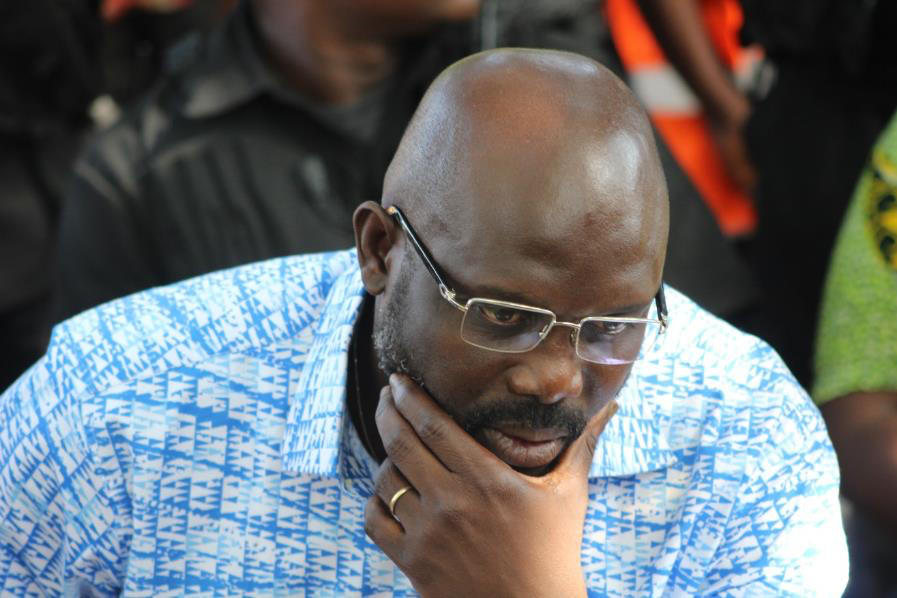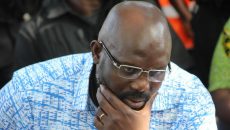On Wednesday, February 7, the Executive Mansion issued a press release stating that Pres. George Weah had withdrawn his nomination for the post of justice minister. This came amid public outcry that the appointee, Charles Gibson, lacked integrity and would not be helpful in the fight against corruption.
However, this is the only action against corruption the president has taken since getting into office. He still has a lot to do to show the Liberian people that he is serious about the fight against corruption.
Despite calls from several corners for Weah to not only declare his assets but also require his appointees to do so, the president has taken no action in that direction. In ignoring the calls from the public, Weah is demonstrating that he has no interest in being tough on corruption. He’s not holding himself or his appointees to a higher standard, and any real change has to start at the top.
Why is asset declaration important at the presidential and cabinet level? It’s simple. Government officials have control over public funds and assets, and they can award government contracts. While we would hope a new president and his appointees would never dip into these funds or award contracts to entities that they have a stake in for personal gain, transparency from the start helps keep them honest. By being transparent, the people will be better able to spot potential conflicts of interest and hold their leaders accountable should illicit enrichment be suspected.
According to the Organization for Economic Cooperation and Development’s Asset Declarations for Public Officials: A Tool to Prevent Corruption document, “a well-designed and operational system of asset declarations can be an important element in the overall anti-corruption and integrity system of a country.â€
The OECD document lists some of the more common goals of asset declaration:
- Increasing transparency and the trust of citizens in public administration — disclosures show the officials have nothing to hide.
- Preventing and resolving conflicts of interest and promoting integrity within their institutions.
- Monitoring wealth variations of politicians and civil servants to dissuade them from misconduct and protect them from false accusations, and to help clarify the full scope of illicit enrichment or other illegal activity by providing additional evidence.
According to the World Bank, asset disclosure requirements for public officials have been introduced for more than 150 countries. They’ve been called a “powerful tool to prevent corruption, detect illicit enrichment, and conflicts of interests.â€
We understand that one of the world’s greatest footballers of all time may be hesitant to declare his assets publicly, but Weah’s no longer just Weah, the athlete; he’s President Weah, and he owes it to the public to do just that.
Not only does President Weah need to show he has nothing to hide and promote integrity within his administration, but he also needs to be as transparent as possible immediately to build trust with the Liberian people and prove just how serious he is about fighting corruption.
Furthermore, assets declaration is actually a requirement by the laws of the republic for “every public official and employee of government.†It’s not something Weah can just opt out of.
Corruption was always one of the top issues Liberians said they cared about during the election season. They rightfully see this plague as a means to siphon public resources away from the intended sources.
Corruption is estimated to cost the continent approximately US$148 billion per year — roughly 20 percent of the continent’s combined gross domestic product. For a country like Liberia that’s struggling to get enough money to fulfill its obligations, this is money that could be used on education, healthcare, and infrastructure.
But Weah’s silence and inaction on the issue is worrying. He spent only 4.39 percent of his inaugural address discussing corruption. While his brief statements were reassuring, they were understandably void of specifics.
“I further believe that the overwhelming mandate I received from the Liberian people is a mandate to end corruption in public service. I promise to deliver on this mandate,†the newly inducted president said. “Those who do not refrain from enriching themselves at the expense of the people – the law will take its course. I say today that you will be prosecuted to the full extent of the law.â€
However, when it came for him to detail the specifics on how he would achieve this, the president fell flat. During his more than 3,300-word State of the Nation address, Weah only mentioned the word ‘corruption’ once. Additionally, only 0.62 percent of his speech discussed the issue of corruption.
Will the president implement the Code of Conduct? Will he pursue cases against past officials accused of corruption? Will he eventually declare his assets and require his appointed officials to do the same?
It’s unclear. However, the president’s silence on these key issues suggests that, within his government, it will be business as usual when it comes to corruption.
Featured photo by Zeze Ballah



